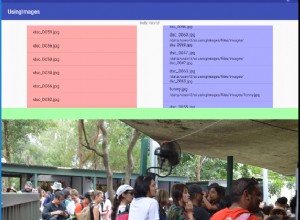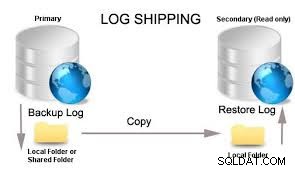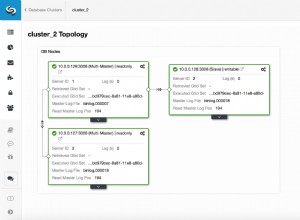Scopri come utilizzare il UTL_FILE pacchetto per esportare i dati da una tabella al file CSV in Oracle PL/SQL.
In Oracle, il pacchetto UTL_FILE contiene molte procedure e funzioni per scrivere un file di testo. Di seguito sono riportati i dettagli della sintassi e i passaggi necessari per scrivere un file:
Sintassi e passaggi per scrivere un file utilizzando UTL_FILE
-- Declare a variable to store file type
n_file UTL_FILE.FILE_TYPE;
-- Open the file in Begin section, it will open the file and return the file handle into the variable n_file
n_file := UTL_FILE.FOPEN('DIR_OBJ', 'YourCSVFileName.csv', 'w', 4000);
-- Write a single or multiple lines
UTL_FILE.PUT_LINE(n_file, 'abc, xyz, xxx');
-- Close the file
UTL_FILE.FCLOSE(n_file); Esempio di base
Declare
n_file Utl_File.File_Type;
Begin
-- The directory object MY_DIR must be exist or create a new one
n_file := Utl_File.Fopen('MY_DIR', 'myfile.csv', 'w', '4000');
Utl_File.Put_Line(n_file, 'First line.');
Utl_File.Put_Line(n_file, 'Second line.');
Utl_File.Put_Line(n_file, 'Third line.');
Utl_File.Fclose(n_file);
End;
Come accennato nell'esempio sopra, l'oggetto directory MY_DIR deve esistere. L'oggetto directory in Oracle è un riferimento alla directory fisica sul server. Quello che segue è un esempio di creazione di un oggetto directory in Oracle:
-- Windows example CREATE OR REPLACE DIRECTORY CSVDIR AS 'd:\oracle\csvfiles'; -- Linux example CREATE OR REPLACE DIRECTORY CSVDIR AS '/usr1/oracle/csvfiles';
Per ulteriori informazioni sull'oggetto directory in Oracle, controlla questo link.
Esporta dati da una tabella in CSV nell'esempio Oracle
Quello che segue è un esempio di stored procedure in Oracle, che esporterà i dati dalla tabella EMP in un file CSV:
Create Or Replace Procedure exp_emp_data Is
n_file utl_file.file_type;
v_string Varchar2(4000);
-- get the data using cursor
Cursor c_emp Is
Select
empno,
ename,
deptno,
sal,
comm
From
emp;
Begin
n_file := utl_file.fopen('CSVDIR', 'empdata.csv', 'w', 4000);
-- if you do not want heading then remove below two lines
v_string := 'Emp Code, Emp Name, Dept, Salary, Commission';
utl_file.put_line(n_file, v_string);
-- open the cursor and concatenate fields using comma
For cur In c_emp Loop
v_string := cur.empno
|| ','
|| cur.ename
|| ','
|| cur.deptno
|| ','
|| cur.sal
|| ','
|| cur.comm;
-- write each row
utl_file.put_line(n_file, v_string);
End Loop;
-- close the file
utl_file.fclose(n_file);
Exception
When Others Then
-- on error, close the file if open
If utl_file.is_open(n_file) Then
utl_file.fclose(n_file);
End If;
End; Ora la tua stored procedure è stata creata, eseguila per esportare i dati:
Begin
exp_emp_data;
End; Tutorial correlati:
- Utilità:genera procedura PL/SQL per esportare dati da una tabella
-

Come posso inserire un'immagine in un database sqlite
-

Come analizzare le stringhe come un professionista utilizzando la funzione SQL SUBSTRING()?
-

Installazione e configurazione di log shipping e ripristino di emergenza di SQL Server -2
-

Controllo del failover della replica per MySQL e MariaDB con script pre o post failover
